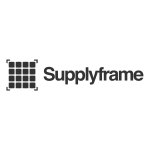Supplyframe Announces Planet-First Theme for the 2022 Hackaday Prize
Challenges Provide Open Source Hardware Community, Electronics Industry an Opportunity to Work Together to Improve the Future, Win Cash Prizes Totaling More Than $100,000
PASADENA, Calif.–(BUSINESS WIRE)–Supplyframe today announced that the ninth annual Hackaday Prize – a global hardware design challenge focused on widespread and impactful innovation that will award more than $100,000 in cash and a Supplyframe DesignLab residency – will focus on sustainability, circularity, and climate crisis resiliency.
“This year the Hackaday Prize is putting the planet first,” said Supplyframe CEO and founder Steve Flagg. “This is an opportunity for the open source hardware community and the electronics industry to work together to drive innovation; reinforce long-term sustainability initiatives with immediate, tangible solutions; and help to create a brighter tomorrow.”
Supplyframe and Hackaday founded the Hackaday Prize in 2014 and have hosted the challenge each year since then. This year’s challenge invites the open source hardware community of hundreds of thousands of designers, engineers, hackers, and scientists to work within the United Nations Sustainable Development Goals structure to tackle the planet’s most pressing issues by creating hardware that drives innovation, solving difficult problems, and serving to “hack the future.”
“We look forward to collaborating again this year with Supplyframe, and we appreciate our 2022 partners Digi-Key and the Decentralized Wireless Alliance,” said Elliot Williams, editor in chief of Hackaday, who added that “The Hackaday Prize challenges this year will address an array of topics, from clean energy to climate resilience.”
The full list of challenges include:
- Planet-Friendly Power: This March 29 challenge will encourage contestants to create solutions to lower the cost of clean energy, through energy harvesting and/or storage efficiency improvements.
- Reuse, Recycle, Revamp: This May 1 challenge will welcome submissions that facilitate recycling of material that would otherwise end up in the waste stream.
- Hack it Back: This June 12 challenge will include projects that add new capabilities to older electrical gear to extend the usefulness of that equipment.
- Climate Resilient Communities: This July 24 challenge will invite participants to design devices that help communities to become more resilient to weather and climate disasters and/or collect data from their environments so that they may advocate for changes in local infrastructure.
- Save the World Wildcard: Anything goes in this Sept. 4 challenge. Designs must stand apart from other challenges and create a more promising future for all.
Representatives from ArtCenter, AT&T, Conservation X Labs, Crowd Supply, Intel, the Massachusetts Institute of Technology (MIT), Moog, NASA Jet Propulsion Laboratory (JPL), NYU, Tesla, the United Nations, and the University of Massachusetts Amherst will serve as judges for this year’s Hackaday Prize challenge entries and mentors for the challenge participants.
In addition to awarding more than $100,000 in cash prizes to the winning entries, the Hackaday Prize will offer the grand prize winner a residency at the Supplyframe DesignLab.
“We look forward to another successful Hackaday Prize challenge, for which the open source community will work to address important issues that stand to impact every person on the planet,” added Flagg. “This contest is yet another proof point of Supplyframe’s ongoing commitment to support and champion open source hardware innovation for social impact.”
Supplyframe held a March 18 pre-launch Hackaday conference at headquarters in Pasadena, Calif. Speakers included Todd Medema, product manager at Tesla; Kate McAndrew, partner at Bolt.io; Clarissa Redwine, grants program manager, and Joey Hiller, technical program manager, at Decentralized Wireless Alliance; Majenta Strongheart, head of design and partnerships at Supplyframe DesignLab; and Richard Barnett, chief marketing officer at Supplyframe. Cesar Jung-Harada, a professor at The University of Hong Kong and founder at MakerBay; Rob Ryan-Silva, global practice specialist, governance and director at DAI Maker Lab; Alicia Gibb, director at the Open Source Hardware Association; Sirina Nabhan and Matthew Ramirez, engineers at the NASA Jet Propulsion Laboratory (JPL); Sameera Chukkapalli, Obama leader at the Obama Foundation, UN Habitat Assembly Speaker, and founder and director at Needlab; Andrew Lamb, innovation lead-global at FieldReady.org; and Williams at Hackaday also spoke at the March 18 event.
About Supplyframe
Supplyframe’s unmatched industry ecosystem, and pioneering Design-to-Source Intelligence (DSI) Solutions, are transforming how people and businesses design, source, market, and sell products across the global electronics value chain. Leveraging billions of continuous signals of design intent, demand, supply, and risk factors, Supplyframe’s DSI Platform is the world’s richest intelligence resource for the electronics industry. Over 10 million engineering and supply chain professionals worldwide engage with our SaaS solutions, search engines, and media properties to power rapid innovation and optimize in excess of $120 billion in annual direct materials spend. Supplyframe is headquartered in Pasadena, Calif., with offices in Austin, Belgrade, Grenoble, Oxford, San Francisco, Shanghai, and Shenzhen. To join the Supplyframe community, visit supplyframe.com and follow us on Twitter, Instagram, and YouTube.
Contacts
Kimberly Barnes
kimberly@bospar.com
440-506-2177



